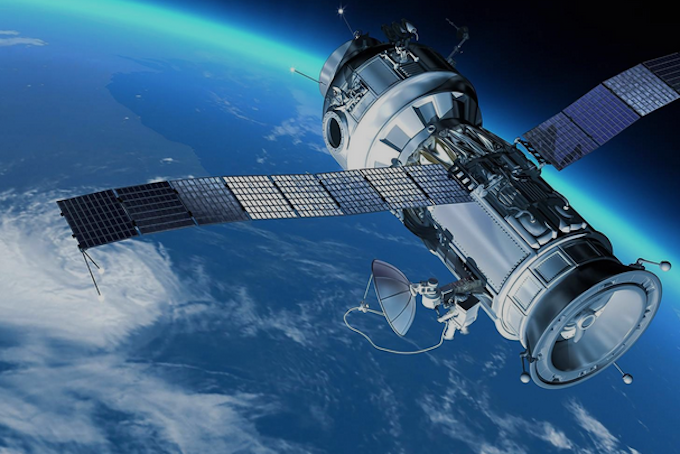Iran Moves to Ditch GPS for China"s BeiDou Amid Security Concerns and Conflict
In a significant shift in its navigational strategy, Iran is reportedly considering the abandonment of the Global Positioning System (GPS) in favor of China"s BeiDou satellite navigation system. This move comes amid heightened security concerns following recent conflicts in the region, particularly a 12-day skirmish that exposed vulnerabilities in Iran"s reliance on Western technology.
Background & Context
The Global Positioning System, developed by the US Department of Defense in the 1970s, has long been the backbone of navigational technology across the globe, including in Iran. However, the increasing frequency of GPS signal disruptions—allegedly orchestrated by both the US and Israel to track Iranian military movements—has catalyzed Tehran"s search for alternatives. Iranian officials have expressed growing unease over the strategic vulnerabilities posed by dependence on a system controlled by potential adversaries.
In light of these tensions, the Iranian government has prioritized the transition to BeiDou, China"s indigenous satellite navigation system. The BeiDou system, which is viewed as a more secure option, is already being utilized in various sectors worldwide, including telecommunications, agriculture, and transportation. Ehsan Chitsaz, Iran"s deputy communications minister, recently stated, "At times, disruptions are created on this [GPS] system by internal systems, and this very issue has pushed us toward alternative options like BeiDou."
Key Developments
Iran"s move to adopt BeiDou is not merely a theoretical discussion; the government is actively formulating plans to transition critical sectors from GPS to BeiDou technology. According to reports from Al Jazeera, the Iranian administration is exploring the integration of BeiDou into transportation, agriculture, and internet services. The process, however, is complex and cannot be executed overnight, given the deep-rooted dependence on GPS technology in Iran"s infrastructure.
The urgency behind this shift has been underscored by the recent conflicts in the Persian Gulf, where Iranian vessels experienced significant GPS signal disruptions. Observers believe that such tactics were employed by Israel and the US to track Iranian officials during heightened military tensions. As a result, Iranian officials have accelerated their efforts to establish a more autonomous navigational framework that minimizes reliance on foreign technology.
\n\n
Image for Iran Moves to Ditch GPS for China"s BeiDou Amid Security Concerns and Conflict
Broader Impact
The implications of Iran"s pivot to BeiDou extend beyond national security. By embracing Chinese technology, Iran is signaling a deeper strategic alignment with Beijing at a time when the geopolitical landscape is increasingly polarized. This partnership may offer Iran not only technological independence but also a counterbalance to Western influence in the region. Experts suggest that this shift could embolden Iran"s military capabilities, allowing for enhanced operational secrecy and efficacy in navigation.
This move also reflects a broader trend in which nations are seeking to develop their own technological infrastructures in response to perceived threats from Western powers. Similar situations have been observed in other countries, such as Russia, which has invested heavily in its own GLONASS navigation system. As countries like Iran turn away from GPS, the global balance of technological power may shift, leading to a more fragmented landscape in satellite navigation.
What"s Next
The transition to BeiDou is expected to unfold gradually as Iran navigates the complexities of implementing a new satellite navigation system. Iranian officials are likely to face challenges in integrating BeiDou into existing technologies while ensuring that critical sectors are not disrupted during the switch. Moreover, the success of this initiative will depend on the government"s ability to foster public and private sector collaboration to facilitate this technological shift.
As Iran embarks on this journey towards greater technological autonomy, the international community will be closely monitoring the implications for regional stability. The shift to BeiDou may not only reshape Iran"s navigational capabilities but could also signify a broader realignment of alliances and dependencies in a rapidly changing global order. For further insights into similar developments, refer to our previous reports on Iran"s strategic partnerships.

Image for Iran Moves to Ditch GPS for China"s BeiDou Amid Security Concerns and Conflict


![[Video] Heavy clashes and gunfire reported in Baghdad, Iraq](/_next/image?url=%2Fapi%2Fimage%2Fthumbnails%2Fthumbnail-1768342239932-848qsh-thumbnail.jpg&w=3840&q=75)




![[Video] Gunfire between Iraqi security forces and Sadr militias in Baghdad](/_next/image?url=%2Fapi%2Fimage%2Fthumbnails%2Fthumbnail-1768343508874-4redb-thumbnail.jpg&w=3840&q=75)
